|
A luxury hotel is a far cry from the extreme poverty of The Road to Parity’s beneficiaries - but the musical, Dot Com City, presents an opportunity for the charity to benefit from a performance at the QE2 Hotel. On Saturday, 27 April 2024, Simpson and Hall’s Dot Com City, The Musical will be performed at the maritime icon, now based in Dubai. Presented by DJMC events, the musical includes Gospel, Rock ‘n’ Roll, Ballads and tells the story of Victoria Dot Com, an evil tyrant who owns all domains and rules Dot Com City. She’ll stop at nothing to get what she wants - helped by sneaky sidekick, Megabite. But someone’s out to get her, and her cyber empire is in jeopardy…. Producer Malcolm Simpson says the musical has previously been shown in the UK and Canada - and this is a specially adapted version for cruise ships, including a fashion show.
“Our research shows that many cruise passengers want to see and hear something new, while some want to see something they are familiar with. This version of Dot Com City does both - and is a very topical story for today’s audience,” says Malcolm, based in Newcastle upon Tyne.. Malcolm adds: “It’s very much an ensemble piece and gives the performers a wonderful opportunity to show their versatility. They are fairground people, then fantasy people, then city people. Each song has a different mood, and each number moves the story along - requiring many different styles of dance and movement.” The show will take place at the QE2 hotel at 7.30pm Dubai time (4.30pm UK) on Saturday, 27 April before an assembled audience. It will also be live streamed worldwide so people can watch online. The Road to Parity is among the charities to benefit when people buy a “Pay-Per-View Charity Ticket”. Dot Com City, The Musical will be available for ticket holders to watch for 30 days after the live event. For more information, go to https://mdotcomcity.com/ Jonathan Hill, The Road to Parity Founder, says: “This was not an opportunity to be missed! We’re very grateful to Malcolm and all those involved with Dot Com City, The Musical for allowing us to share in such a wonderful spectacle. We appreciate we’re quite late to the party, but the global streaming option gives donors the chance to enjoy the performance for another month after the live show.” The Road to Parity helps people in extreme poverty in developing nations to become entrepreneurs. Since starting its micro-grant based initiative in 2019, a total of 90 businesses have been set up in the slums of Delhi in India, benefitting around 500 household members. A similar programme has just been announced in Uganda.
0 Comments
The Road to Parity has entered a new partnership to support entrepreneurs in Uganda. It follows an international search for a new partner after the conclusion of Project Unnati in India in 2023. “We’re so pleased to be entering a new country and indeed a new continent to extend our fight against extreme poverty,” says Jonathan Hill, TRTP Founder. “The search has been long, but we are now confident we can continue our work to transform lives through entrepreneurship.” The new partnership is with Canaan Children’s Development Initiative (CACDI), a non-profit organisation in Luweero District, north of Uganda’s capital, Kampala. CACDI comes to the aid of highly vulnerable children, such as orphans, disabled youngsters and those infected with HIV/AIDS to provide welfare and educational support. It also assists widows and victims of domestic violence, who will be the focus of the new partnership, beginning with a trial. Lilian Nayiga, who is leading the trial for CACDI in Uganda, says: “CACDI’s partnership with TRTP is very timely and will provide what has been the missing link in CACDI’s efforts to combat repeated abuse against women in communities of Luweero district. In this regard transforming widows and vulnerable women’s lives through entrepreneurship will greatly lessen their dependence on the perpetrators of abuse hence availing a safe environment where young children can thrive.” Under Project Unnati in India, TRTP’s micro grant-based model was used to set up 90 businesses in the slums of Delhi. Many of the ventures in India were street-based stalls selling an array of high turnover daily items, such as fruit, vegetables, snacks, clothes and household goods. Other businesses involved tailoring, welding, beauty care, air conditioning and bicycle repairs, among others. Although most of the beneficiaries had no prior business experience, the ventures would often become profitable quickly, significantly increasing household income.
Using a careful screening process, entrepreneurs are identified before discussions take place on what might be a suitable venture. Once an idea is agreed, the beneficiaries are provided with some basic business training, along with the equipment and supplies needed to begin trading. The TRTP model has been adjusted slightly for Uganda as the beneficiaries will be in rural, lower footfall areas, compared with the mostly high footfall businesses in India. Selling clothes is also felt to be unsuitable as their relatively high cost for the local market will slow sales and block cash flow. Unlike many similar initiatives in developing nations, the small grant available is not a loan and does not need to be repaid. TRTP believes people in extreme poverty have suffered enough. TRTP and CADI have agreed a Memorandum of Understanding to run the trial, which will be assessed at the end of 2024. fThe Road to Parity’s partnership with Indian NGO, Learning Links Foundation, (LLF) has drawn to a close after supporting scores of new businesses. The charity, which helps people in extreme poverty to become entrepreneurs, has been working with LLF since 2019. Together, they created Project Unnati, which has seen the establishment of 90 businesses in the slums of Delhi, benefitting around 500 people. “All good things come to an end, and I fully understand that priorities can sometimes change in a partnership,” said Jonathan Hill, Founder of The Road to Parity (TRTP). “It’s been brilliant working with LLF. We have built an entrepreneur programme from scratch to assist some of the poorest people on the planet and delivered life-changing results. I am very grateful to the team in India for their contribution over the years to create something really special and meaningful.” Sudeep Dube, Senior Vice President at LLF, said: “Since 2019, it’s been an amazing journey of learning and implementing ‘Unnati’ Project in partnership with The Road to Parity, and needless to say that it was an incredible experience to work on this high impact program for the ‘Bottom of the pyramid’. Unlike any other project, it has been very rewarding in the sense that the time difference between outcome and impact was marginal. Together, this partnership has seen highs and lows of the program and faced the intimidating period of pandemic and never before lockdown period in history of India.” Sudeep added: “Due to certain changes in our operational strategy, LLF will no longer be able to support the program, Nevertheless, we shall always be proud of making remarkable change in the life of beneficiaries who have been supported under the program.” Under Project Unnati, a host of enterprises have been set up. Many were street-based, selling clothes, household goods, jewellery, cosmetics, fruit and vegetables, as well as tea and snacks. Other businesses have been supported to repair bicycles, carry out air conditioning repairs and welding. There have also been home-based businesses, such as tailoring and ironing. The charity provides a one-off micro grant to help buy the equipment and supplies needed to begin an enterprise and some start-up guidance. The simplicity of the model means the businesses can become profitable almost immediately, generating a means of financial independence. In addition to being in extreme poverty, many of the beneficiaries are illiterate, while others have been victims of domestic violence, or are mentally and physically challenged – making the many success stories even more remarkable. The project was named Unnati (meaning progress) after one of the first beneficiaries said she felt her new business would bring prosperity to her family after years of suffering extreme poverty.
TRTP secretary Richard Owens said: "It’s a sign of maturity that the charity is now able to evaluate and move beyond our very first overseas partnership. In my experience in the third sector as a CEO and trustee, the deep value and learning opportunity that come from this first ever partnership will be carried forward for many years ahead. Thanks should go to LLF for catching our vision and identifying beneficiaries. What a joy to see the social, emotional, and economic impact of our interventions. Now we look to the future!" Jonathan added: “Starting in India was the right thing to do because that’s where the idea for the programme came from. Now, for us to continue our work, we are looking for a new partner, either in India, or in another developing nation where there is extreme poverty. “ Covid and rising food prices push quarter of a billion more people into extreme poverty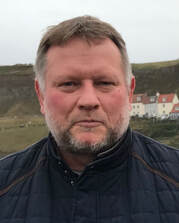 Jonathan Hill Jonathan Hill The programme which transforms the lives of families in extreme poverty through entrepreneurship has made solid progress with 26 new enterprises set up. The new ventures established throughout 2022 have enabled the charity - with its partner in India, Learning Links Foundation (LLF) - to reach an overall total of 86 new businesses established. In the most recent batch of businesses, five out of the six beneficiaries are illiterate, and more than half the group are supporting households of six people or more. Their businesses sell warm clothes, school bags, scarves/hosiery items, cosmetics, as well as lemon and masala teas. One of the entrepreneurs has set up a tailoring enterprise. Funding for Project Unnati began at the end of 2019 with the first group of eight entrepreneurs. The number of beneficiaries has steadily grown since then, despite major disruption in 2020 and 2021 due to Covid. Jonathan Hill, Founder of The Road to Parity, says: “As most of the world started to bounce back after Covid, we made steady progress in 2022. International payment issues prevented us from reaching the target of 90 businesses in total, but this will soon be reached as we continue to fund more life-changing opportunities.” All 86 businesses established under Project Unnati so far have been set up in the slums of Delhi. Many of the entrepreneurs have set up street stalls, and home-based tailoring is another popular trade. Some of the less common businesses include an ironing enterprise, repair businesses for bicycles and air-conditioning and a welding venture. The project was named Unnati (meaning progress) after an early beneficiary said she felt her new business would bring prosperity to her family after enduring extreme poverty.  Rashmi Mishra Rashmi Mishra “It's heart-warming to see that little twinkle in people’s eyes when they do their first sale or business transaction,” says Rashmi Mishra, who has helped manage Project Unnati within India since the start. “It's one thing to help people overcome their challenges but seeing them regaining their confidence and restoring their faith and trust in humanity is overwhelming.” Covid and extreme poverty Covid-19 has damaged economies across the world. It has also worsened the plight of those in extreme poverty and increased the numbers who fall into this category of people who live on less than $1.90 per day. Global poverty had been in decline before Covid struck. According to the U.S-based Brookings Institution, the number of people suffering extreme poverty had dropped from 1.9 billion in 1990 to 648 million in 2019 – and was on course to fall further to 537 million by 2030. However, the pandemic has caused the number to increase for the first time in over two decades. 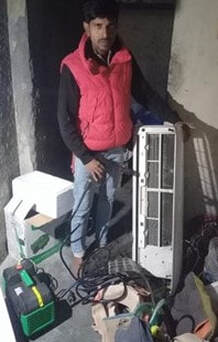 Mohd. Sarfaraz Mohd. Sarfaraz Oxfam International reported last year that the combination of Covid and rising food prices will push 263 million more people into extreme poverty – equivalent to the populations of the UK, France, Germany, and Spain combined. Project Unnati, which started funding businesses in the months before Covid struck, has also seen business casualties along the way. Out of the 86 businesses supported so far, 72 are still trading or 84%. None have failed since Covid restrictions were lifted in India. However, the challenges beneficiaries face on a personal level go far deeper than the impact of the virus. In addition to being in extreme poverty, many of the beneficiaries are illiterate, while others have been victims of domestic violence, or are mentally and physically challenged. How extreme poverty feels In a 2015 blog for the World Economic Forum, entitled ‘What does extreme poverty really feel like?’ Gisela Solymos wrote: “People in poverty suffer from pain. It attacks a person not only materially but also morally, eating away at one’s dignity and driving one into total despair.” In 2000, The World Bank stated there are three different types of pain caused by poverty.
Jonathan says: “Given the complexities surrounding poverty, and the additional agony of Covid, it is truly remarkable that any of these businesses have succeeded, let alone 84%. The people we help are among the poorest on the planet. I have the greatest respect for their tenacity to make these businesses work against the odds.” Rashmi says: “Over the years, we have seen the people who have benefitted under Project Unnati becoming the inspiration and motivation to their friends and family.” She adds: “At LLF, we have always believed in the concept of life-long learning and when it comes to learning by doing then the outcomes are astounding.” Mohd. Sarfaraz’s story Mohd. Sarfaraz comes from a background of extreme poverty. Before Covid struck, the 26-year-old worked in an air conditioning repair shop, and while he could sometimes earn 5,000 Indian Rupees a month, he was at the mercy of a boss who made arbitrary salary reductions. The pandemic made the situation even more desperate with increasingly meagre wages to support him and his parents. The Project Unnati outreach team came across Mohd. Sarfaraz - and after learning of his AC maintenance skills, offered him an escape route. He jumped at the opportunity and received support to buy AC cleaning equipment. His little business is taking off and he now makes an average profit of around 9,500 Indian Rupees per month (approx. £95). This is more reliable income and almost double what he earned before. One day Mohd. Sarfaraz hopes to have his own shop and team of staff. “I’m so grateful for the opportunity I’ve been given. The extra money has enabled me to purchase medicine for my elderly parents. And I’ve been able to get new clothes for them.” 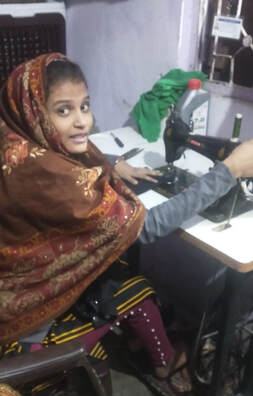 Farida Khatoon Farida Khatoon Farida Khatoon’s story Farida comes from a very poor family where six people had been trying to survive on £8.32 each per month. Her husband’s meagre labouring salary was trapping them in financial misery. Farida is illiterate but knew how to sew and thought she might be able to bring some more money into the house by doing some home-based tailoring. After discussing her idea with the Project Unnati outreach team, the 20-year-old was supported with a new business kit. Farida is now earning up to 5,000 Rupees a month, which has doubled the household income. “I’m doing much better now. I’m so happy,” she says. “I’ve been able to buy some tailoring material to help expand the business.” Over 60 businesses rise from Delhi slums in poverty alleviation initiative |
|
|
|
40 businesses established under poverty alleviation initiative
A programme set up to fight extreme poverty through entrepreneurship has ended Covid-dominated 2020 on a high with a total of 40 businesses now established.
Despite the hurdles created by the virus, 32 businesses have been supported during the year through Project Unnati, following on from the 8 enterprises that were set up in late 2019.
Many of the recent beneficiaries have been young women, often illiterate and without any prior business experience. They have been helped to set up a variety of enterprises, including tailoring and ironing businesses, and stalls selling popular items, such as shawls and dupattas, cosmetics, hosiery, children’s clothes, vegetables, and snacks. All businesses so far have been started in slum districts of the Indian capital, Delhi.
Jonathan Hill, Founder of The Road to Parity, said; “This is fantastic news to end what has been, for so many people, a horribly tough year. I am so proud of our entrepreneurs who can look forward to 2021 with new hope as they gradually leave a life of suffering behind.”
“I’d also like to acknowledge our partner in India, Learning Links Foundation, for their ongoing support, particularly the outreach team, who have carefully navigated the evolving Covid restrictions to ensure beneficiaries could begin trading as soon as possible,” Jonathan added.
Under Project Unnati, potential beneficiaries are prioritised using a strict points system. At its core is identifying people in extreme poverty – households who have been scraping an existence on around £10 (13 USD), or less, per person, per month.
Other factors considered include helping the poorly educated, sole breadwinners supporting large families, the physically and mentally challenged, women, victims of domestic violence, and young men struggling on unstable labouring income while supporting families - effectively trapping them in extreme poverty.
Beneficiaries are given a one-time-only grant, which is used, under supervision, to buy the supplies and equipment required to set up a business. Basic guidance is provided on how to get started and progress is reviewed to ensure the business remains on track.
The first batch of entrepreneurs was set up in November 2019. The project was named Unnati (meaning progress) after one of the first beneficiaries said she felt her new business would bring prosperity to her family after years of desperate poverty.
OTHER 2020 HIGHLIGHTS
In February, The Road to Parity announced it had been granted registered charity status by the Charity Commission for England and Wales. There are different legal structures for a charity. TRTP opted for becoming a Charitable Incorporated Organisation (CIO), which means fewer administration requirements - freeing up more time and money to help the poor.
In March, India went into lockdown - the world's largest – as 1.3 billion Indians were asked to stay at home. Project Unnati outreach activity was suspended - and entrepreneurs identified for support - after enduring years in extreme poverty – faced a tortuous wait to start their dream businesses.
In June, following the establishment of eight businesses in November 2019, the results of a review were published into how the micro grant-based model was working. It is important to highlight that many beneficiaries are illiterate and have no prior business experience. The findings showed:
The micro grants offer one-off support. It is made clear to beneficiaries that this is a once in a lifetime opportunity to escape extreme poverty and they will not be able to come back for top up funds.
In July, once the business model had been shown to work, donation channels were opened in readiness for a charity fund-raising challenge. On 11 July, The Road to Parity’s Founder, Jonathan Hill, got on his mountain bike and began cycling from Land’s End to John O’Groats, combining his passion for cycling with raising money, and the wish to do something positive during Covid. Daily updates on the solo, unsupported trip were posted on Facebook and a total of £2,356 (3,222 USD) was raised, exceeding the £1,500 target. The best images from the 24-day, 932-mile adventure through some of Britain’s most stunning scenery can be seen on our challenge page. The money raised during this challenge has funded many of this year’s entrepreneurs with the remainder to be used in early 2021.
In August, Kohinoor’s was among the many beneficiary stories shared throughout the year. Here is the story that was posted on social media, as a reminder of why the charity exists.
In March, India went into lockdown - the world's largest – as 1.3 billion Indians were asked to stay at home. Project Unnati outreach activity was suspended - and entrepreneurs identified for support - after enduring years in extreme poverty – faced a tortuous wait to start their dream businesses.
In June, following the establishment of eight businesses in November 2019, the results of a review were published into how the micro grant-based model was working. It is important to highlight that many beneficiaries are illiterate and have no prior business experience. The findings showed:
- None of the businesses established failed
- Household incomes increased by 13% to 120%
- Household incomes increased on average by 65%
- Businesses benefitted households of up to 9 people
- The average grant provided was £52 (66 USD)
- Data was based on a 3-month pre-Covid period
The micro grants offer one-off support. It is made clear to beneficiaries that this is a once in a lifetime opportunity to escape extreme poverty and they will not be able to come back for top up funds.
In July, once the business model had been shown to work, donation channels were opened in readiness for a charity fund-raising challenge. On 11 July, The Road to Parity’s Founder, Jonathan Hill, got on his mountain bike and began cycling from Land’s End to John O’Groats, combining his passion for cycling with raising money, and the wish to do something positive during Covid. Daily updates on the solo, unsupported trip were posted on Facebook and a total of £2,356 (3,222 USD) was raised, exceeding the £1,500 target. The best images from the 24-day, 932-mile adventure through some of Britain’s most stunning scenery can be seen on our challenge page. The money raised during this challenge has funded many of this year’s entrepreneurs with the remainder to be used in early 2021.
In August, Kohinoor’s was among the many beneficiary stories shared throughout the year. Here is the story that was posted on social media, as a reminder of why the charity exists.
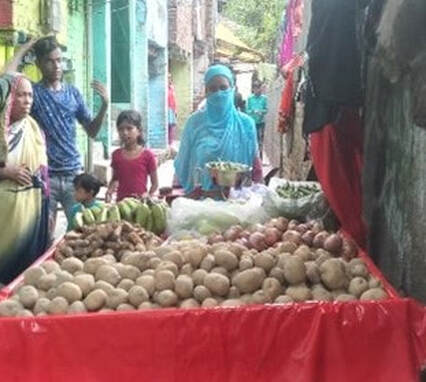
Kohinoor was already in poverty with 4 children when her husband – earning a pittance as a labourer – was killed in a road accident.
When her only brother and sister-in-law died through chronic illnesses, she had to take on another 4 children. Kohinoor lives in a Delhi slum, and with her father and mother under the same roof, there were 11 mouths to feed on a domestic helper’s salary.
So, you can imagine how much her face lit up when we discovered her and told her about Project Unnati, which we run with our partner in India, Learning Links Foundation.
Kohinoor said she’d love to have a vegetable stall. With a grant of 58 pounds (77 USD), we helped get her started; a cart, weighing scales and some stock. Now, Kohinoor buys vegetables from a wholesale market early in the morning – does her domestic helper job during the day – and returns to her business to sell vegetables in the evening. Full of pride, she reports already doubling household income.
In November, after a lengthy approval process, The Road to Parity was recognised by the PayPal Giving Fund, enabling eBay sellers to donate a percentage of a sale to the charity. TRTP is also using easyfundraising - which triggers free donations for shopping online, and AmazonSmile – the same products and prices as Amazon - but a small percentage is donated with purchases at no cost to the shopper.
10 MILESTONES
|
|
|
Twenty four days after setting off from Land's End on a mountain bike, Jonathan Hill arrived in John O'Groats, relieved to have finally completed the iconic cycling route.
By the time The Road to Parity's Founder had reached the north east tip of Scotland, he was travelling on his third back wheel because of multiple fractures along the way. He'd also had to replace his seat, tyres, inner tubes and brake pads, and was wearing a wrist support following a fall coming over the Cairngorms in the Scottish Highlands.
After pedalling the entire length of Great Britain solo and unsupported through some of its most challenging cycling terrain, he had this to say on his 3 August arrival in John O'Groats.
Jonathan, a keen cyclist, wanted to combine a personal challenge with the launch of donation channels for the charity - and do something positive during Covid. A JustGiving page was set up and the pedal against poverty fund-raising target was set at £1,500. Daily updates were posted on the charity's Facebook page after the 11 July departure from Land's End. The final fund-raising total was £2,356.
"I'm really pleased the fund-raising target has not only been reached, but exceeded," Jonathan said. "A big thanks to all those who followed the journey and donated, including the kind people who gave along the way. The support meant a lot and provided much-needed encouragement, particularly when climbing some of those killer hills!"
All the money raised goes to Project Unnati (meaning progress) in India. The programme helps people in extreme poverty to set up tiny businesses - with a one-off grant of around £50.
Many of the entrepreneurs who are supported have had little education and are illiterate. Despite this, the results so far have been extremely promising. None of the businesses - mostly street stalls - have failed and household income has increased by up to 120%.
Reflecting on the journey, Jonathan said: "The trip gave me so much more than I expected. Yes, it was an immense physical challenge and I'm glad it motivated people to donate. But it was also an opportunity to re-acquaint myself with my home country - an incredibly diverse, and at times, stunningly beautiful island."
The route took Jonathan through England, Wales, back into England, and up through Scotland. Including the 17 miles back to Wick train station from John O'Groats, the overall distance covered was 932 miles.
He added: "As I progressed north, so many aspects gradually changed; accents, culture, architecture, landscape and the weather. It was so refreshing and therapeutic to be so close to nature day after day, especially in areas of wilderness. And all of this as Covid restrictions were lifting with different rules in different places. It was a truly fascinating adventure and one I will never forget."
The best pictures from the trip can be seen on the challenge page.
By the time The Road to Parity's Founder had reached the north east tip of Scotland, he was travelling on his third back wheel because of multiple fractures along the way. He'd also had to replace his seat, tyres, inner tubes and brake pads, and was wearing a wrist support following a fall coming over the Cairngorms in the Scottish Highlands.
After pedalling the entire length of Great Britain solo and unsupported through some of its most challenging cycling terrain, he had this to say on his 3 August arrival in John O'Groats.
Jonathan, a keen cyclist, wanted to combine a personal challenge with the launch of donation channels for the charity - and do something positive during Covid. A JustGiving page was set up and the pedal against poverty fund-raising target was set at £1,500. Daily updates were posted on the charity's Facebook page after the 11 July departure from Land's End. The final fund-raising total was £2,356.
"I'm really pleased the fund-raising target has not only been reached, but exceeded," Jonathan said. "A big thanks to all those who followed the journey and donated, including the kind people who gave along the way. The support meant a lot and provided much-needed encouragement, particularly when climbing some of those killer hills!"
All the money raised goes to Project Unnati (meaning progress) in India. The programme helps people in extreme poverty to set up tiny businesses - with a one-off grant of around £50.
Many of the entrepreneurs who are supported have had little education and are illiterate. Despite this, the results so far have been extremely promising. None of the businesses - mostly street stalls - have failed and household income has increased by up to 120%.
Reflecting on the journey, Jonathan said: "The trip gave me so much more than I expected. Yes, it was an immense physical challenge and I'm glad it motivated people to donate. But it was also an opportunity to re-acquaint myself with my home country - an incredibly diverse, and at times, stunningly beautiful island."
The route took Jonathan through England, Wales, back into England, and up through Scotland. Including the 17 miles back to Wick train station from John O'Groats, the overall distance covered was 932 miles.
He added: "As I progressed north, so many aspects gradually changed; accents, culture, architecture, landscape and the weather. It was so refreshing and therapeutic to be so close to nature day after day, especially in areas of wilderness. And all of this as Covid restrictions were lifting with different rules in different places. It was a truly fascinating adventure and one I will never forget."
The best pictures from the trip can be seen on the challenge page.
The Road to Parity is marking the opening of its fund-raising channels with a major cycling challenge from Land's End at the south west tip of England to John O'Groats in the far north east of Scotland.
Jonathan Hill, the charity's Founder, will begin the iconic cycling route on Saturday 11 July. It will take him at least 3 weeks to complete the journey of around 1,000 miles, using B-roads and cycle trails, avoiding main roads where possible.
Jonathan said: "Cycling is a passion of mine and I thought how can I challenge myself in a way that benefits the charity and creates something positive amidst all the Covid negativity? I started mentioning the idea to a few people, did some research and before I knew it, I’d talked myself into it!"
The challenge will begin in England where Covid restrictions have sufficiently lifted for the trip to go ahead. By the time Jonathan reaches the Scottish border, it's expected that key movement and tourism accommodation restrictions will have been relaxed in Scotland.
The charity lifts people out of extreme poverty through entrepreneurship. A total of 20 enterprises have either been set up or are in the process of launching in slum areas of the Indian capital, Delhi. Results so far show these small, mostly street businesses, boost household income by up to 120%.
Jonathan has been largely funding the charity himself for the past 18 months. The plan now, with partner, Learning Links Foundation in India, is to scale up, fund more micro-enterprises and free more households from desperate poverty.
Jonathan said: "That’s where I need people's help. I know things are difficult for many people at the moment because of Covid, but if your bank account has more in it than you need, please do the right thing and donate." A JustGiving page has been set up for the challenge with a target of 1,500 pounds (USD 1,956). The main updates from the trip with be on the charity's Facebook page @theroadtoparity.
The charity helps the poorest of the poor. Many of the beneficiaries are illiterate and exist along with fellow household members on less than 35p (USD 0.45) each a day.
The business model is very simple and based on Jonathan's academic research in India. The charity provides a small grant (average so far £52) so that carefully vetted beneficiaries can buy a piece of equipment or supplies to get a business started. It could be a cart and some vegetables for a street stall or a sewing machine to begin a tailoring business.
"You should see the joy when very poor people are given a chance. It brings immense pride, financial independence and a wonderful realisation that the extreme poverty they have endured is no longer a life sentence," Jonathan added.
In time, the charity plans to expand to other developing countries so it can assist many more people in extreme poverty.
Jonathan Hill, the charity's Founder, will begin the iconic cycling route on Saturday 11 July. It will take him at least 3 weeks to complete the journey of around 1,000 miles, using B-roads and cycle trails, avoiding main roads where possible.
Jonathan said: "Cycling is a passion of mine and I thought how can I challenge myself in a way that benefits the charity and creates something positive amidst all the Covid negativity? I started mentioning the idea to a few people, did some research and before I knew it, I’d talked myself into it!"
The challenge will begin in England where Covid restrictions have sufficiently lifted for the trip to go ahead. By the time Jonathan reaches the Scottish border, it's expected that key movement and tourism accommodation restrictions will have been relaxed in Scotland.
The charity lifts people out of extreme poverty through entrepreneurship. A total of 20 enterprises have either been set up or are in the process of launching in slum areas of the Indian capital, Delhi. Results so far show these small, mostly street businesses, boost household income by up to 120%.
Jonathan has been largely funding the charity himself for the past 18 months. The plan now, with partner, Learning Links Foundation in India, is to scale up, fund more micro-enterprises and free more households from desperate poverty.
Jonathan said: "That’s where I need people's help. I know things are difficult for many people at the moment because of Covid, but if your bank account has more in it than you need, please do the right thing and donate." A JustGiving page has been set up for the challenge with a target of 1,500 pounds (USD 1,956). The main updates from the trip with be on the charity's Facebook page @theroadtoparity.
The charity helps the poorest of the poor. Many of the beneficiaries are illiterate and exist along with fellow household members on less than 35p (USD 0.45) each a day.
The business model is very simple and based on Jonathan's academic research in India. The charity provides a small grant (average so far £52) so that carefully vetted beneficiaries can buy a piece of equipment or supplies to get a business started. It could be a cart and some vegetables for a street stall or a sewing machine to begin a tailoring business.
"You should see the joy when very poor people are given a chance. It brings immense pride, financial independence and a wonderful realisation that the extreme poverty they have endured is no longer a life sentence," Jonathan added.
In time, the charity plans to expand to other developing countries so it can assist many more people in extreme poverty.
An entrepreneurs programme set up to lift people out of extreme poverty has shown it can increase household incomes by up to 120%.
Project Unnati, launched by The Road to Parity in conjunction with Learning Links Foundation in India, provides one-off grants to individuals wanting to start a small business.
The first batch of entrepreneurs launched their new ventures in slum areas of Delhi last year. The businesses were set up with an average grant of 52 pounds (66 USD) and included street stalls selling items, such as vegetables, household goods, dumplings, cosmetics, and snacks.
Here are the highlights:
The success of the trial comes despite most of the beneficiaries being illiterate and having no prior business experience. The pilot also revealed signs of business agility as one of the entrepreneurs started off selling vegetables and then switched to boiled eggs to better respond to circumstances on the ground.
Jonathan Hill, Founder of The Road to Parity, said: “The results are extremely encouraging and show the model works. Unlike a loan, the one-off grant does not need to be paid back as we feel people who have been in extreme poverty have suffered enough.”
He adds: “However, we make it clear to beneficiaries that this is one-time only financial support. It's an opportunity to transform their lives, become financially independent and escape crippling poverty.”
Project Unnati has been disrupted due to COVID-19, but existing businesses will resume trading and new enterprises will be started as and when conditions allow. In all, seven businesses had been established prior to COVID-19 and were included in the pilot results. A further 13 new enterprises are waiting for conditions to improve to start trading, although one of these, a tailoring business, has been able to begin some work from home.
Project Unnati, launched by The Road to Parity in conjunction with Learning Links Foundation in India, provides one-off grants to individuals wanting to start a small business.
The first batch of entrepreneurs launched their new ventures in slum areas of Delhi last year. The businesses were set up with an average grant of 52 pounds (66 USD) and included street stalls selling items, such as vegetables, household goods, dumplings, cosmetics, and snacks.
Here are the highlights:
- None of the businesses established so far have failed
- Household income increases ranged from 13% to 120% - with an average household income increase of 65%
- Up to 9 members per household have been positively impacted
- Businesses were assessed over a 3-month period pre-COVID 19
The success of the trial comes despite most of the beneficiaries being illiterate and having no prior business experience. The pilot also revealed signs of business agility as one of the entrepreneurs started off selling vegetables and then switched to boiled eggs to better respond to circumstances on the ground.
Jonathan Hill, Founder of The Road to Parity, said: “The results are extremely encouraging and show the model works. Unlike a loan, the one-off grant does not need to be paid back as we feel people who have been in extreme poverty have suffered enough.”
He adds: “However, we make it clear to beneficiaries that this is one-time only financial support. It's an opportunity to transform their lives, become financially independent and escape crippling poverty.”
Project Unnati has been disrupted due to COVID-19, but existing businesses will resume trading and new enterprises will be started as and when conditions allow. In all, seven businesses had been established prior to COVID-19 and were included in the pilot results. A further 13 new enterprises are waiting for conditions to improve to start trading, although one of these, a tailoring business, has been able to begin some work from home.
The Road to Parity has provided funding to its first batch of entrepreneurs, setting them on a path to break free from extreme poverty.
The new micro-enterprises in a Delhi slum include stalls selling vegetables, boiled eggs, snacks, household goods and cosmetics.
The entrepreneurs have been provided with start-up funding to buy equipment and supplies. Each business cost around 50 pounds (63 USD) to set up.
The Road to Parity, along with its partner in India, Learning Links Foundation, devised strict criteria to identify the
poorest of the poor and most vulnerable.
This included looking at the per head household income, the size of the household, the number relying on the sole breadwinner and level of education. Priority has also been given to female entrepreneurs and those with disabilities.
“This is a very tough call. Of course, you can’t help everyone, and you need to make sure that the people being selected are the most in need,’’ said Jonathan Hill, Founder of The Road to Parity. “One of the things we discovered when we were assessing families is that some were living on less than 10 pounds (12.5 USD) per person per month. This is heartbreaking and we want to try to help as many of these people as we can.”
Before the initiative, the beneficiaries would generally be scraping a living from intermittent or very low paid labour.
The financial support is provided as a micro-grant, and unlike a loan does not need to be paid back. However, it is monitored and will likely be the recipients’ only chance to get out of poverty.
28-year old Phoola was in a desperate situation, working as a domestic helper and supporting a family of six, when she was identified for funding to set up a boiled egg stall.
Phoola, who is illiterate, was asked to describe in a word what it meant to her being the first beneficiary under the micro-entrepreneurship programme.
She said “Unnati,” which means progress, as she believes the start-up money she’s been given will bring prosperity. The programme in India is now called Project Unnati.
The new micro-enterprises in a Delhi slum include stalls selling vegetables, boiled eggs, snacks, household goods and cosmetics.
The entrepreneurs have been provided with start-up funding to buy equipment and supplies. Each business cost around 50 pounds (63 USD) to set up.
The Road to Parity, along with its partner in India, Learning Links Foundation, devised strict criteria to identify the
poorest of the poor and most vulnerable.
This included looking at the per head household income, the size of the household, the number relying on the sole breadwinner and level of education. Priority has also been given to female entrepreneurs and those with disabilities.
“This is a very tough call. Of course, you can’t help everyone, and you need to make sure that the people being selected are the most in need,’’ said Jonathan Hill, Founder of The Road to Parity. “One of the things we discovered when we were assessing families is that some were living on less than 10 pounds (12.5 USD) per person per month. This is heartbreaking and we want to try to help as many of these people as we can.”
Before the initiative, the beneficiaries would generally be scraping a living from intermittent or very low paid labour.
The financial support is provided as a micro-grant, and unlike a loan does not need to be paid back. However, it is monitored and will likely be the recipients’ only chance to get out of poverty.
28-year old Phoola was in a desperate situation, working as a domestic helper and supporting a family of six, when she was identified for funding to set up a boiled egg stall.
Phoola, who is illiterate, was asked to describe in a word what it meant to her being the first beneficiary under the micro-entrepreneurship programme.
She said “Unnati,” which means progress, as she believes the start-up money she’s been given will bring prosperity. The programme in India is now called Project Unnati.
Author
The Road to Parity
Archives
April 2024
November 2023
January 2023
February 2022
December 2020
August 2020
July 2020
June 2020
November 2019
September 2019
November 2018
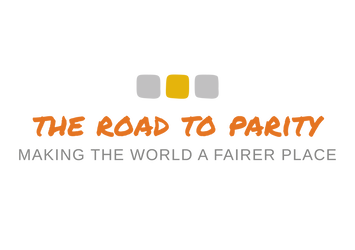
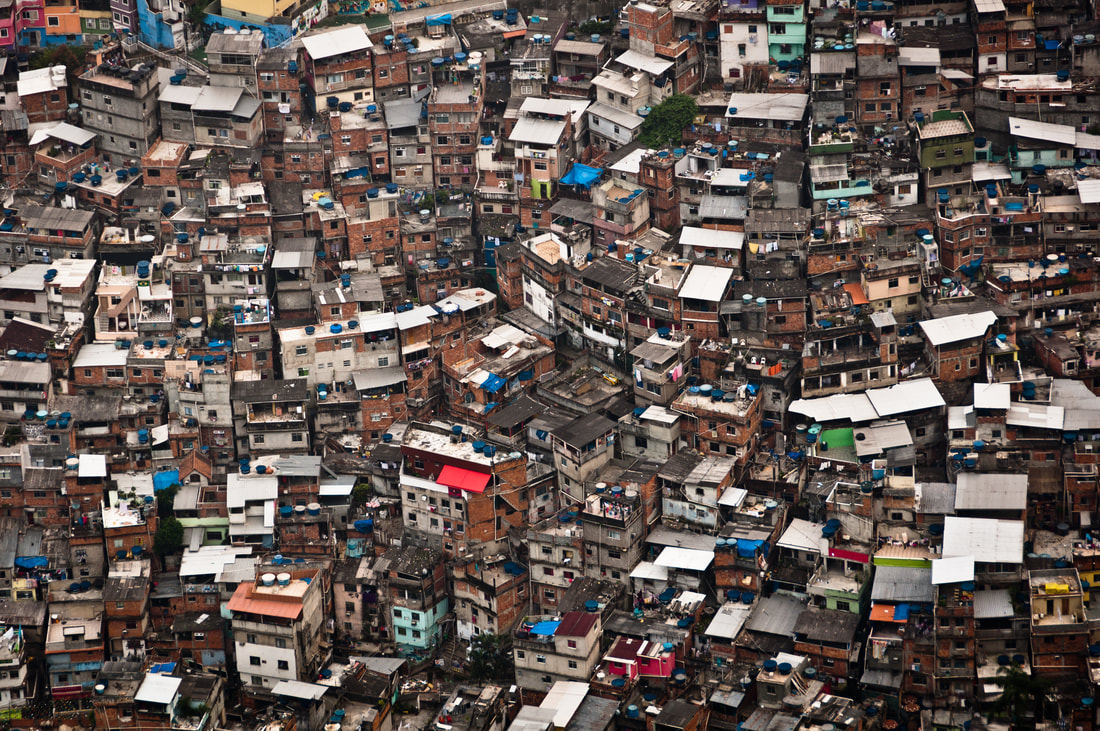

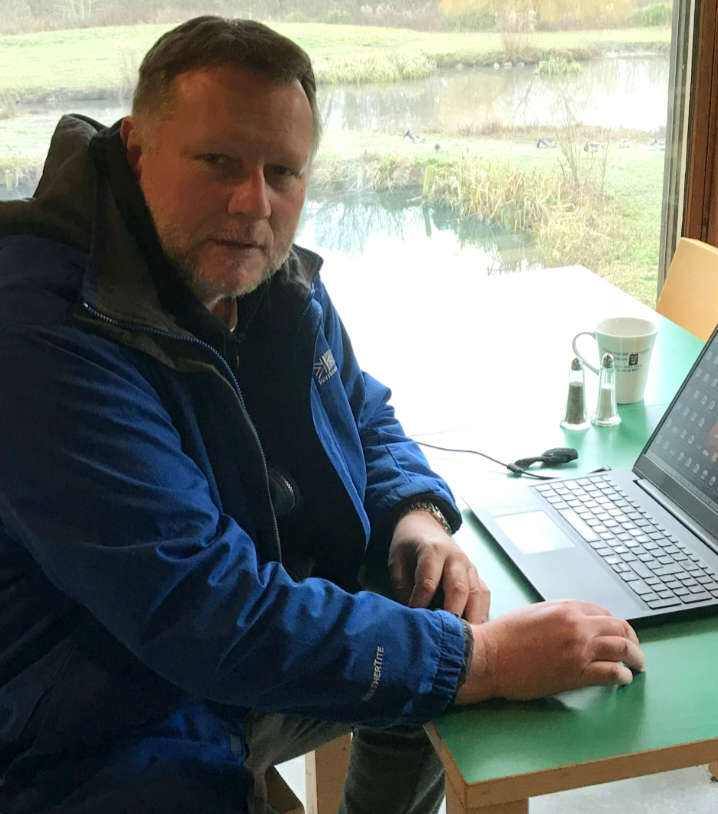

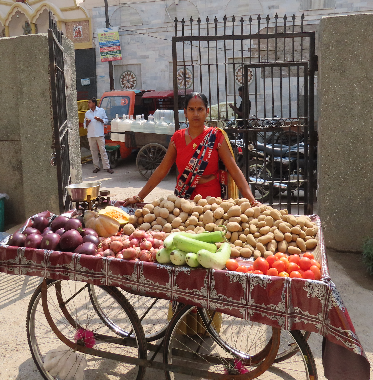
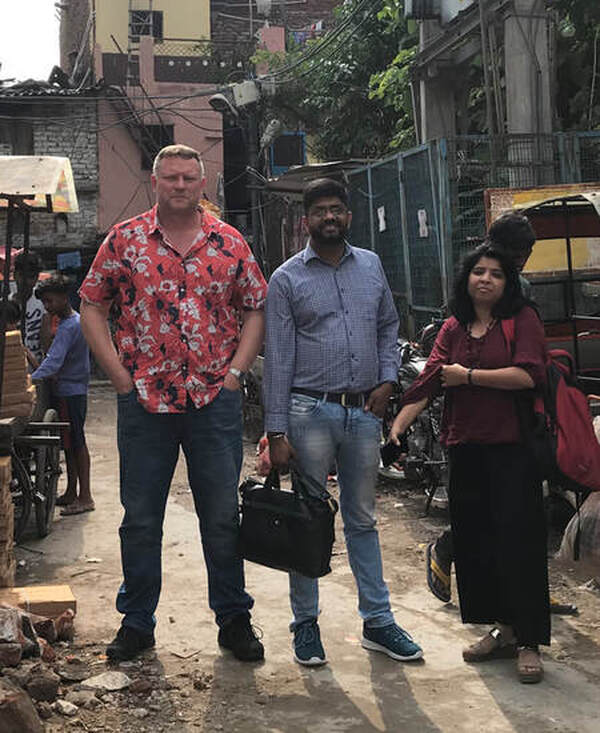
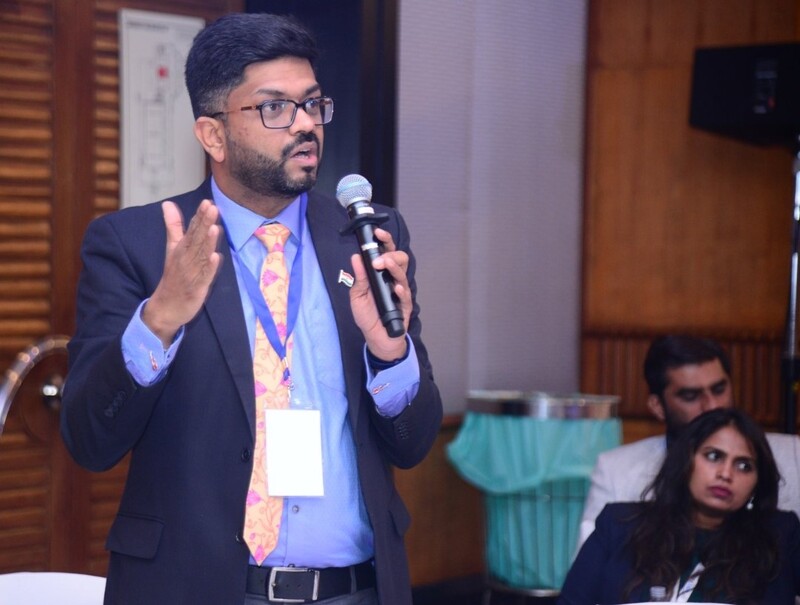
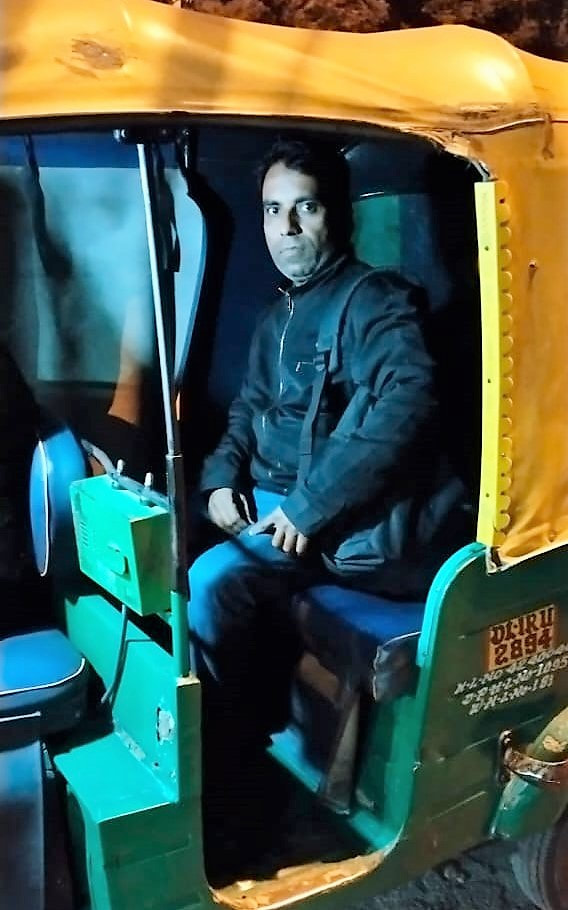
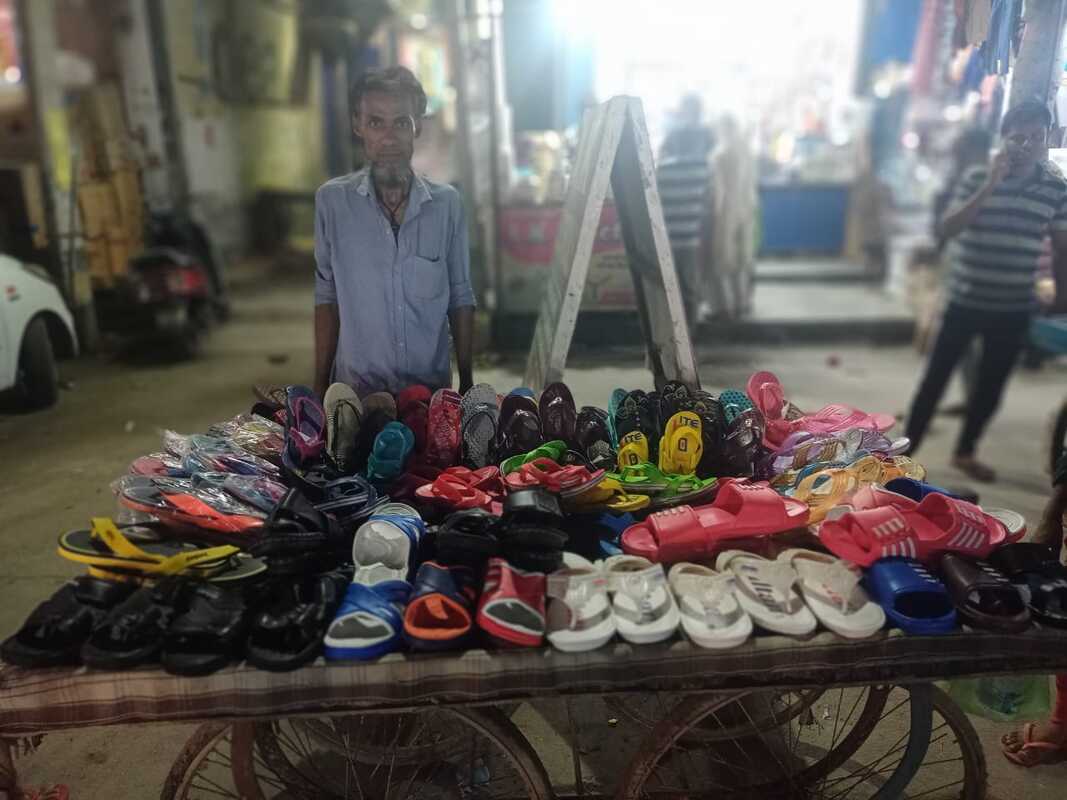
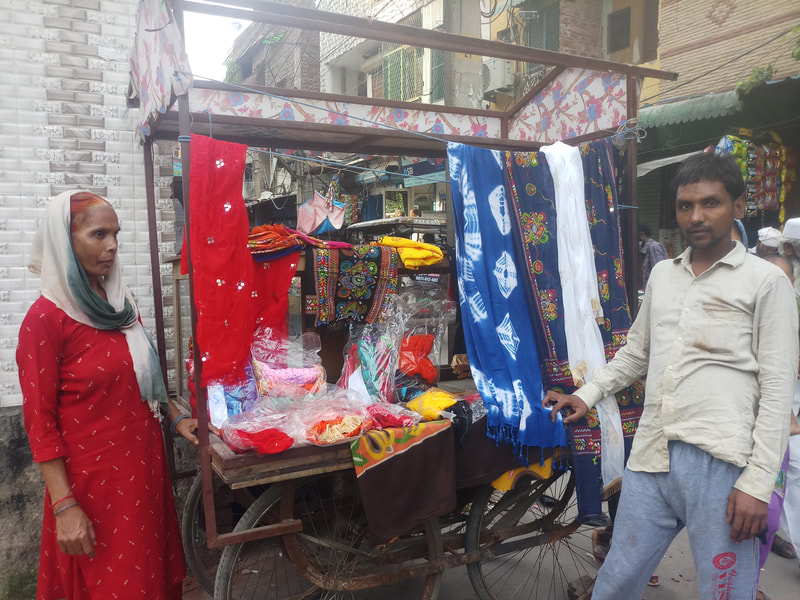
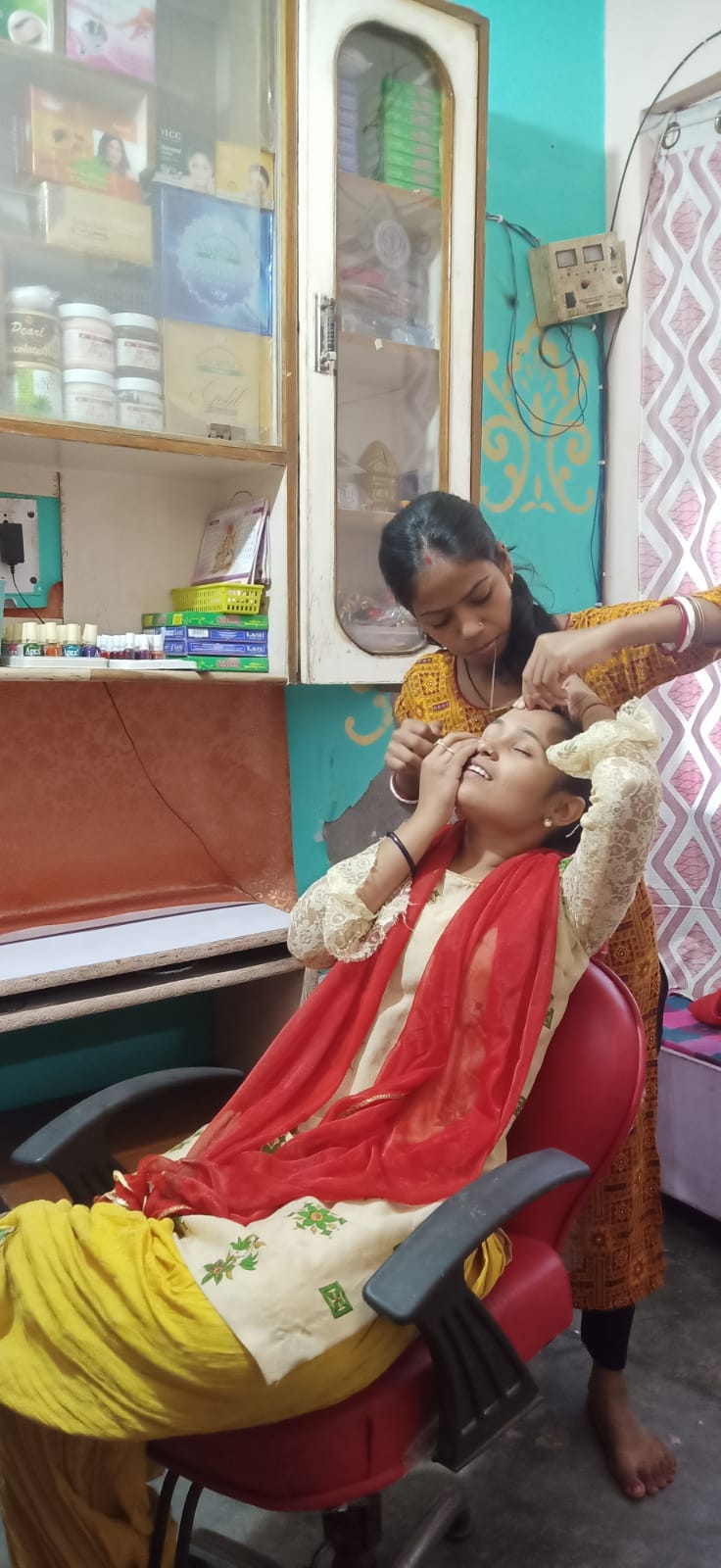
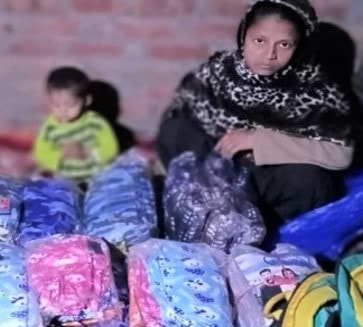
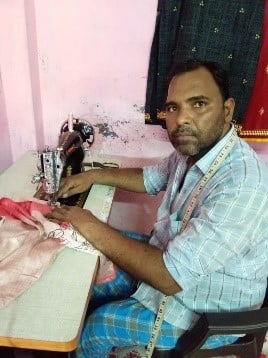
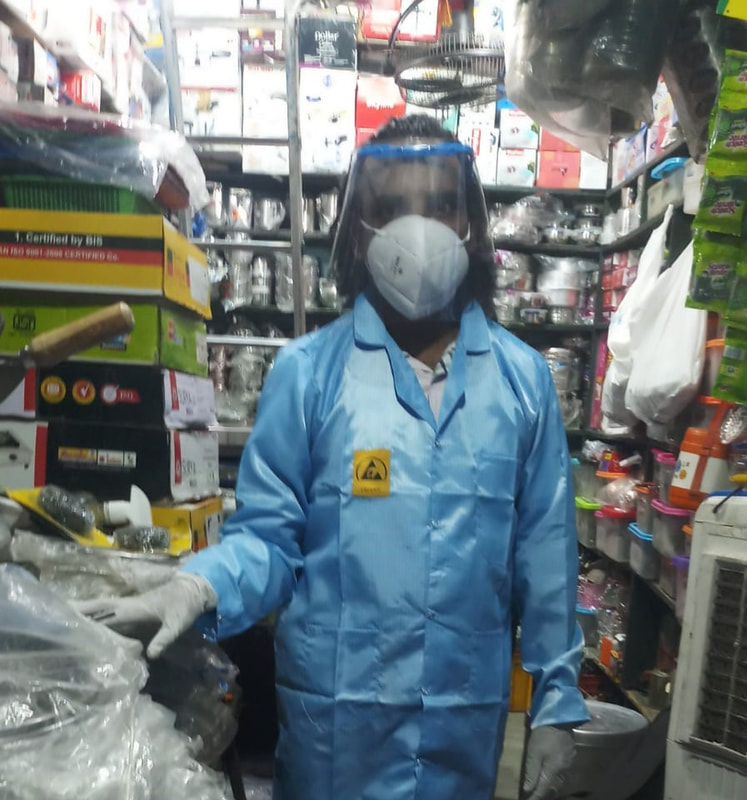
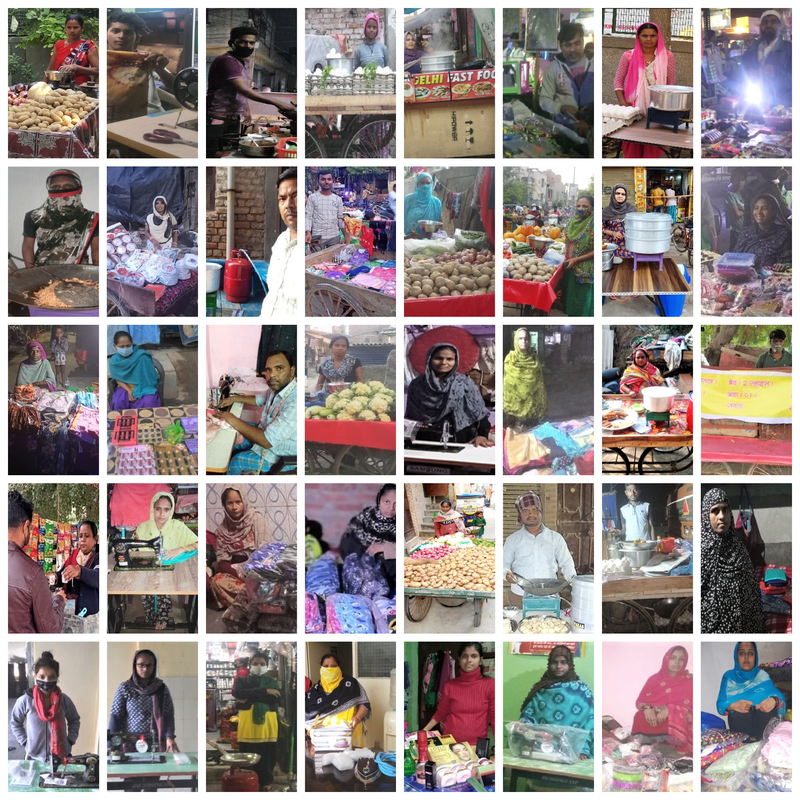
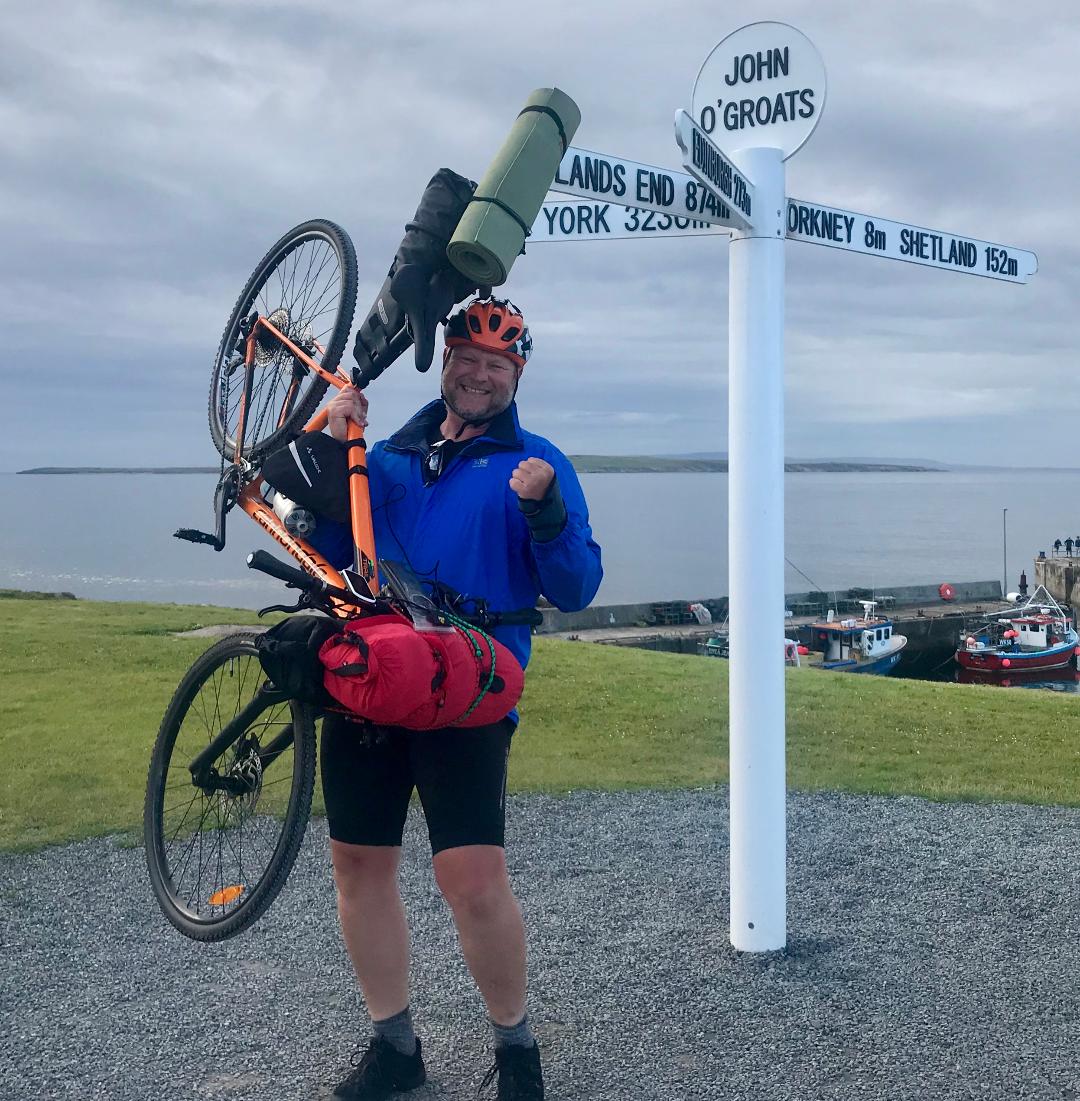



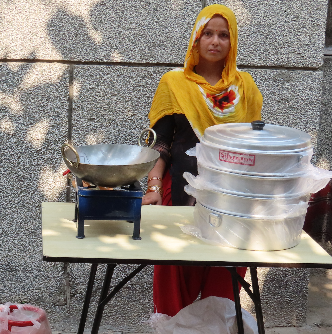
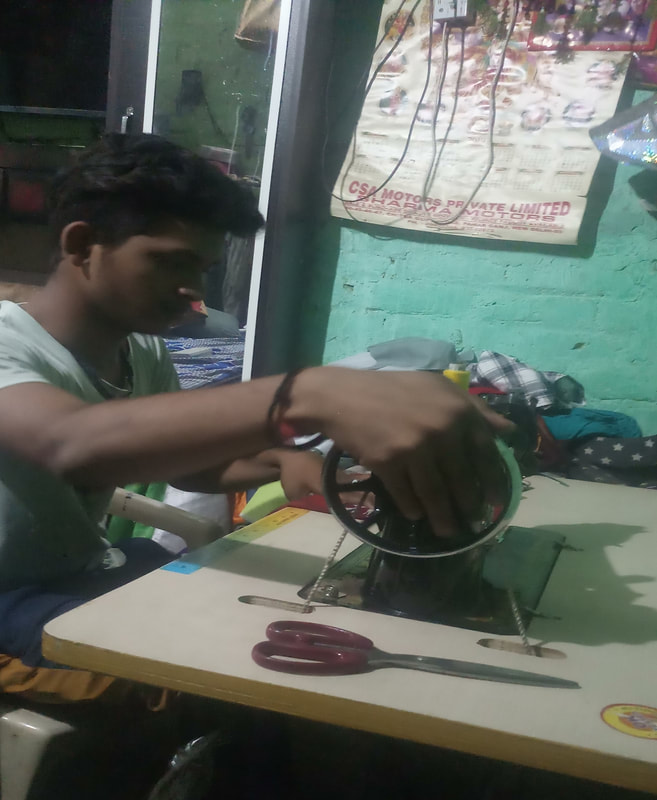
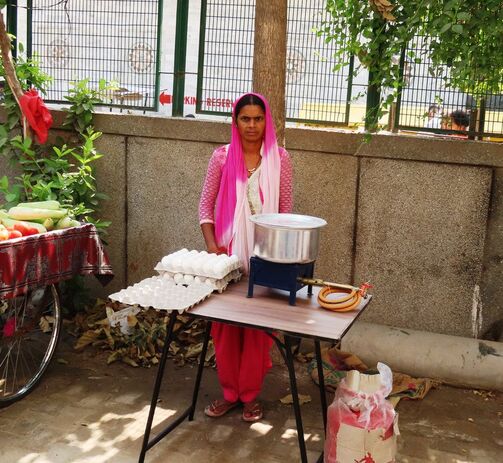
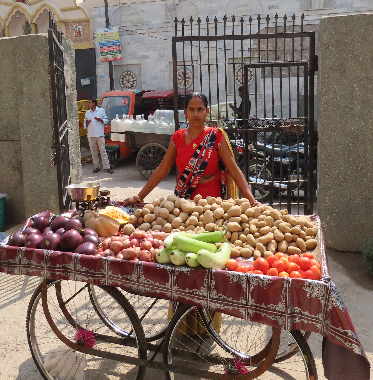
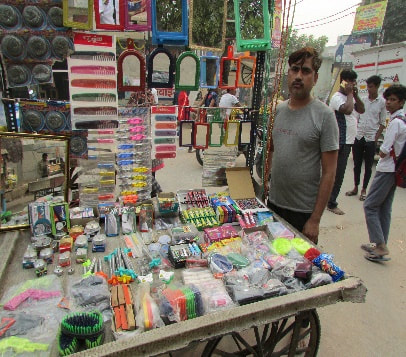
 RSS Feed
RSS Feed